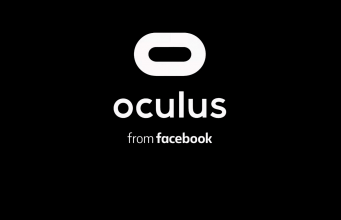
If you wondered why yesterday’s news stirred such a significant reaction from the VR community at large, it’s not just because Facebook doesn’t have a stellar reputation on privacy, it’s also because the company specifically promised it wouldn’t force users to log-in with a Facebook account to use their Oculus headset.
Let’s set the stage with a quick refresher on Oculus’ history. As an entirely unknown startup, the company had a blowout Kickstarter success in 2012 when it raised $2.4 million for a VR headset development kit, the Rift DK1. Alongside gaining the attention and favor of key companies like Valve and veteran engineers like John Carmack and Michael Abrash, the company managed to rapidly raise a string of investments from high profile VC firms; a Series A round of $16 million in early 2013 followed by a Series B round of $75 million in late 2013.
The quickly rising startup caught the eye of Facebook founder Mark Zuckerberg, who came to believe that VR and AR would be the next major shift in computing, and an avenue to get out from under the thumb of tech giants like Apple and Google. In 2014, Facebook acquired Oculus for a whopping $2 billion.
At the time, Facebook was the last company anyone would have expected to buy Oculus. Our headline here on Road to VR at the time encapsulates that surprise: “Not an Early April Fools Prank: Facebook Acquires Oculus VR Inc for $2 Billion.”
Even ardent supporters of the company were immediately skeptical that Facebook’s business model could rot the foundation of Oculus’ VR ambitions with invasive user-tracking and ad serving.
To assuage such fears, Facebook, on behalf of Oculus’ founder, Palmer Luckey, promised in no uncertain terms that users would never be required to log-in with Facebook to Oculus headsets, nor would developers need to do so to develop content for those headsets.
It was the day of the announcement of Oculus’ acquisition that Luckey took to the Oculus community on Reddit to offer explanations to angry supporters. “I guarantee that you won’t need to log into your Facebook account every time you wanna use the Oculus Rift,” he said in response to a Redditor asking if he could at least promise that much.
Yesterday the company demolished that promise when it announced that it would begin requiring all new users of Oculus headsets to log-in with a Facebook account starting in October, and that existing users would also be required to log-in by the end of 2022 if they wanted to retain full use of their headsets.
Although Luckey—which was later pushed out of Facebook because of his personal political views—was the one that made the promise, he wasn’t acting on his own. Luckey had long been a visible spokesperson for the company; the promise wasn’t his, it was that of Oculus and Facebook.
Following Facebook’s announcement this week, Luckey confirmed as much, saying that his guarantee had been “approved” by Facebook.
“I want to make clear that those promises were approved by Facebook in that moment and on an ongoing basis, and I really believed it would continue to be the case for a variety of reasons.”
Although Luckey believed at the time that Facebook would allow Oculus to operate largely independently, it wasn’t long after Luckey was pushed out of Facebook in 2017 that other core Oculus founders began to leave. By then Oculus had already begun to erode Oculus’ autonomy, but by the time the final founder left in 2019, Oculus was being run by Facebook appointed executives and had effectively become just another team within the larger company.
And if there was any question if that was the case, this week’s news—that the company would simply disregard promises it had made about requiring a Facebook log-in to use Oculus products—is surely the period on the last page of the Oculus acquisition story.
– – — – –
It certainly makes us wonder… what good is any promise now from Facebook about where it will draw the line between what it thinks is right for Facebook users and what’s right for Oculus users?
Back at the start of the acquisition story, Luckey—and by extension, Oculus and Facebook—had made another promise too. “We are not going to track you, flash ads at you, or do anything invasive.”
But by now Facebook has already confirmed that it tracks the activity of Oculus users to inform advertising shown to those users outside of the headset.
Will Oculus headsets “flash ads at you” in the future? This week Facebook answered that question in an unabashedly non-committal way (perhaps because it has realized that people actually expect it to keep promises that it makes): “We do not currently display ads in Oculus devices.”
The post Here’s Where Facebook “Guaranteed” Users Would Never Need a Facebook Account to Use Oculus Headsets appeared first on Road to VR.
from Road to VR https://ift.tt/2Q9h1Z7
via IFTTT
No comments:
Post a Comment